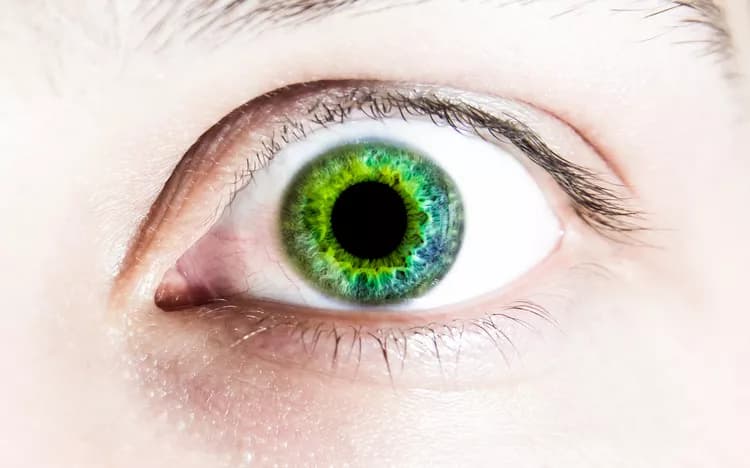
Solar Eclipse: Using Adaptive Optics To Understand Eye Damage
In a first-of-its-kind study, Mount Sinai researchers are using adaptive optics (AO) to analyze retinal eye damage from the August solar eclipse on a cellular level. The research could help doctors develop a deeper understanding of this rare condition, called solar retinopathy, which has no currently accepted treatment.
Adaptive optics is a sophisticated technology that allows clinicians to examine microscopic structures of the eye in living patients with extreme detail in real time. Before the development of AO, researchers could only see this level of detail on glass slides with a microscope.
A team of scientists from the New York Eye and Ear Infirmary of Mount Sinai (NYEE) and the Icahn School of Medicine at Mount Sinai used this state-of-the-art imaging technology to get a precise view of how much individual cellular damage resulted from the solar eclipse, something that has never been done before. The findings were published in the December 7 online issue of JAMA Ophthalmology.
"We have never seen the cellular damage from an eclipse because this event rarely happens and we haven't had this type of advanced technology to examine solar retinopathy until recently," said lead investigator Avnish Deobhakta, MD, Assistant Professor of Ophthalmology at the Icahn School of Medicine at Mount Sinai. "NYEE is one of the few sites in North America with access to this technology, and using this to get an exact look at this retinal damage on such a precise level will help clinicians better understand the condition."
Mount Sinai investigators used AO imaging on a patient who looked at the sun during the eclipse for 21 seconds without protective eyewear. Four hours later, the patient developed blurry distortion in both eyes and could only see the color black. NYEE specialists examined her three days later and found she had burned a hole in her retinas and diagnosed her with solar retinopathy and photochemical burns.
Using this technology, researchers obtained high-resolution images of the damaged photoreceptors, which may provide a deeper understanding of the condition that could one day lead to the development of treatments.
"It's exciting to be able to see such a correlation between the patient's symptoms and the photoreceptor injury on a cellular level. Hopefully this research allows us to potentially develop future therapies for solar retinopathy and other forms of photic injury to the retina," said Chris Wu, MD, a resident physician at New York Eye and Ear Infirmary of Mount Sinai. "This study can prepare doctors and patients for the next eclipse in 2024, and make them more informed of the risks of directly viewing the sun without protective eyewear."
Materials provided by The Mount Sinai Hospital / Mount Sinai School of Medicine. Note: Content may be edited for style and length.
Disclaimer: DoveMed is not responsible for the accuracy of the adapted version of news releases posted to DoveMed by contributing universities and institutions.
References:
- Chris Y. Wu, Michael E. Jansen, Jorge Andrade, Toco Y. P. Chui, Anna T. Do, Richard B. Rosen, Avnish Deobhakta. (2017). Acute Solar Retinopathy Imaged With Adaptive Optics, Optical Coherence Tomography Angiography, and En Face Optical Coherence Tomography. JAMA Ophthalmology. DOI: 10.1001/jamaophthalmol.2017.5517
Related Articles
Test Your Knowledge
Asked by users
Related Centers
Related Specialties
Related Physicians
Related Procedures
Related Resources
Join DoveHubs
and connect with fellow professionals

0 Comments
Please log in to post a comment.